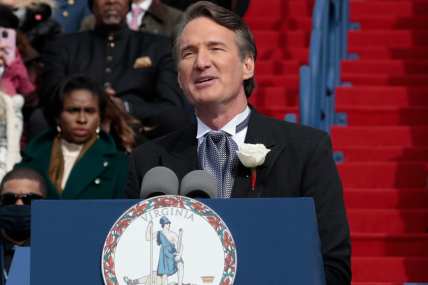Florida GOP lawmakers pass bill to limit discussion of race
Black senators delivered impassioned speeches against the bill. Republicans were united in backing the proposal. It passed on a 24-15 party line vote.
TALLAHASSEE, Fla. (AP) — The Republican-dominated Florida Legislature gave Gov. Ron DeSantis another victory in what some call his political culture war by sending him a bill Thursday that will limit discussions teachers and businesses can have about race.
Black senators delivered impassioned speeches against the bill, and there was little Republican debate for it. But in a year DeSantis is seeking reelection and positioning himself for a 2024 presidential run, Republicans were united in backing the proposal the governor has said is a top priority. It passed on a 24-15 party line vote.
The bill reads in part, “A person should not be instructed that he or she must feel guilt, anguish, or other forms of psychological distress for actions, in which he or she played no part, committed in the past by other members of the same race or sex.” It applies to K-12 public schools, but not universities.

Black senators said the bill will have a chilling effect on how African American history is taught because teachers will fear lawsuits if students’ parents object to how they present subjects like slavery, segregation, lynchings and the continued presence of racism in the United States.
It also limits how private businesses can teach race sensitivity, which Democrats say is unconstitutional.
“This is a continuation of a national agenda to whitewash history all because we don’t want white children to feel uncomfortable about true Black history,” said Democratic Sen. Shevrin Jones, who is Black. “Just because you don’t like the truth, doesn’t mean you try to hide behind it.”
DeSantis held a campaign-like event when he announced he was going to seek legislation to prevent critical race theory instruction in schools and businesses.
Critical race theory is a way of thinking about America’s history through the lens of racism. It was developed during the 1970s and 1980s in response to what scholars viewed as a lack of racial progress following the civil rights legislation of the 1960s. It centers on the idea that racism is systemic in the nation’s institutions and that they function to maintain the dominance of white people in society.
There is little to no evidence that critical race theory itself is being taught to K-12 public school students, though some ideas central to it, such as lingering consequences of slavery, have been.
Republican Sen. Manny Diaz, a Cuban-American who sponsored the bill, said people in Cuba are told what to think and that shouldn’t happen in the United States.
“My parents left that country because education wasn’t about creating thinkers, it wasn’t about having a debate like the one we’re having today. That wasn’t allowed. It was about indoctrination. Indoctrination by the government to tell you what you must think,” Diaz said. “We send our students to school to learn, to be thinkers, not to be told what to think.”
He said the bill doesn’t prevent the teaching of horrific moments in the country’s history.
“No one is trying to wash out or erase history,” he said. “They have to teach about the fact that we had slavery, that we had Jim Crow laws … but our history also includes the fact that have fought to remove those terrible things from our laws and our society.”
After early criticism of the bill, it was amended to require the expansion of the teaching of Black history, including teaching students about the ramifications of prejudice, racism and stereotyping.
Diaz also acknowledged Wednesday during questions on the bill that he didn’t consult with any of the five Black senators to get their thoughts before filing it. It was clear Thursday that those members saw the bill as hurtful and politically motivated.
“The Republicans have lost touch with reality,” Jones said after the vote. “Their arrogance has caused them not to care, because they believe they’re winning and until members of their own party start pushing back on this narrative that they’re trying to create nationally, they’re going to keep doing the same thing.”
In his debate, Jones mentioned parts of Florida history of racial injustice ranging from the massacre Black residents to the killing of unarmed Black teenager Trayvon Martin.
“This is the so-called free state of Florida,” he said. “This is exactly what Florida has always been. Florida has not changed yet. We still have a ways to go … This will forever be a stain on history.”
The bill was written with feel-good language. It was called the “Individual Freedom” bill and states that all people are equal before the law — which is already in the U.S. Constitution.
Democratic Sen. Bobby Powell told his colleagues that after he was reelected, he was stopped by police at the Capitol while he tried to enter the building. He said the officer referred to him with an expletive when reporting a man claiming to be a senator was trying to get in.
“This bill discusses the past. The past can be as recent as yesterday,” Powell said.
He mentioned the chamber’s four other Black senators and said, “We woke up this morning not feeling good about this day, but it’s here. It’s the lived experience that we want you to see.”
TheGrio is FREE on your TV via Apple TV, Amazon Fire, Roku and Android TV. Also, please download theGrio mobile apps today!

